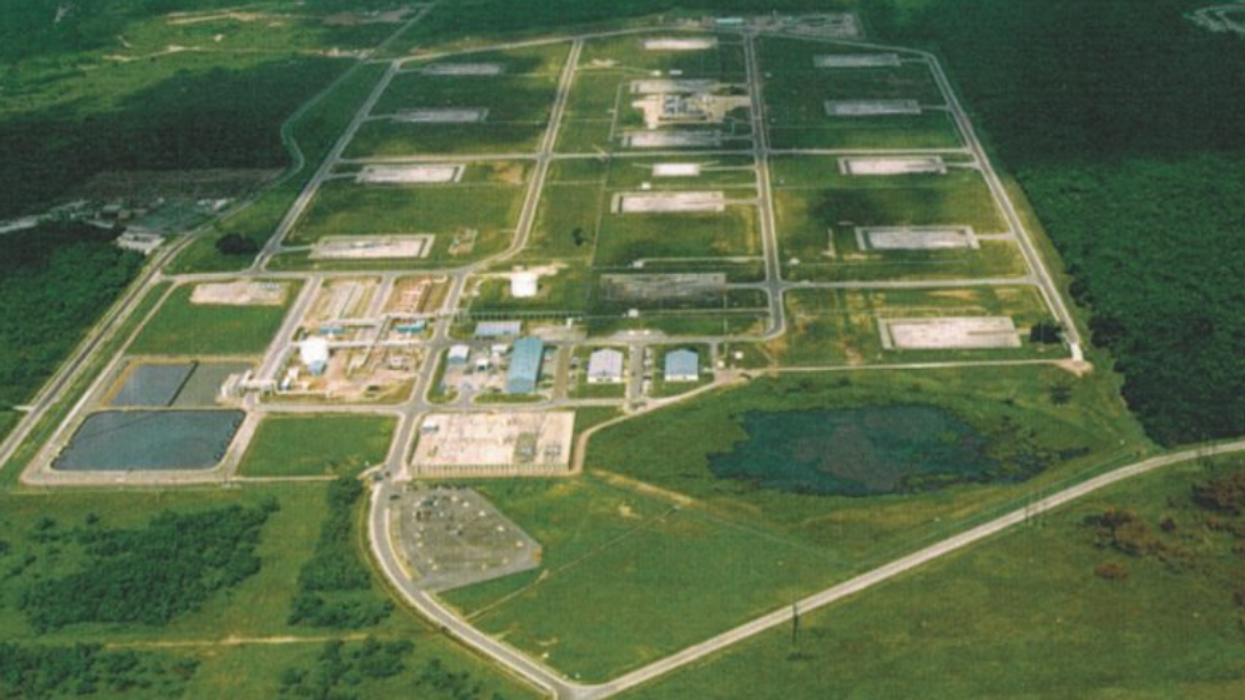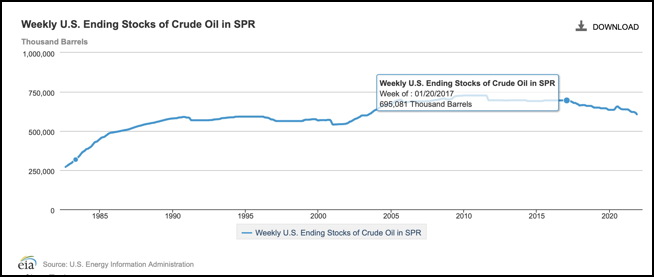Biden Orders Record Strategic Oil Release To Stabilize Prices Amid War
By Alexandra Alper and Timothy Gardner
WASHINGTON (Reuters) - President Joe Biden on Thursday launched the largest release ever from the U.S. emergency oil reserve to try to bring down gasoline prices that have soared during Russia's war with Ukraine, the White House said.
Starting in May, the United States will release 1 million barrels per day of crude oil for six months from the Strategic Petroleum Reserve, a senior administration official told reporters.
The 180 million barrels is equivalent to about two days of global demand, and marks the third time Washington has tapped the SPR in the past six months.
The release will more than cover oil exports to the United States from Russia, which typically produces about ten percent of the world's crude, but only accounts for eight percent of U.S. liquid fuel imports. Biden banned U.S. imports of Russian oil this month.
But the release will fall short of a loss of about three million barrels per day of Russian oil which the International Energy Agency estimates will be caused by Western sanctions and as global buyers avoid the oil.
Biden also called on Congress to make energy companies pay fees on wells from leases they have not used in years, for U.S. oil companies to drill more, and for boosts in production of electric vehicles and batteries.
The oil release will "serve as bridge until the end of the year when domestic production ramps up," the White House said.
The Biden administration has worked with allies in the IEA in recent weeks to coordinate releases which will bring the total volume to global markets to well over 1 million barrels per day, the official said.
The 31-member IEA, the world's energy watchdog, may announce a release when the member states meet on Friday. The group, representing industrialized nations including the United States, but not Russia, presided over the fourth coordinated oil release in its history on March 1 of over 60 million barrels of crude – its largest yet. The U.S. portion of that release was about half of the total.
Oil prices plunged about five percent on the news of the latest U.S. reserve draws while OPEC+, a production group including Saudi Arabia and Russia, stuck to a modest deal to slowly ramp up output. [O/R]
'Use It Or Lose It'
The Biden administration has long said that energy companies are sitting on thousands of unused leases and are slow to open the spigot. Biden will call for a "use it or lose it" policy that will seek to push oil companies to take advantage of unused oil leasing permits, a senior administration official told reporters.
"We do think there should be consequences if you're sitting on unused approved permits for production on federal lands," the official said. The policy would charge companies if they are sitting on wells and not developing leases, the official said.
Oil companies have said they like to have a deep inventory of permits to give them flexibility on future planning and that labor and logistical constraints can be a headwind in using them.
Biden invoked the Defense Production Act to support the production and processing of minerals and materials used for large capacity batteries used in electric vehicles - such as lithium, nickel, cobalt, graphite, and manganese, the White House said. He also urged Congress to pass his plan to move the country toward clean energy policies.
(Reporting By Timothy Gardner, Alexandra Alper, Steve Holland; Editing by Marguerita Choy)




